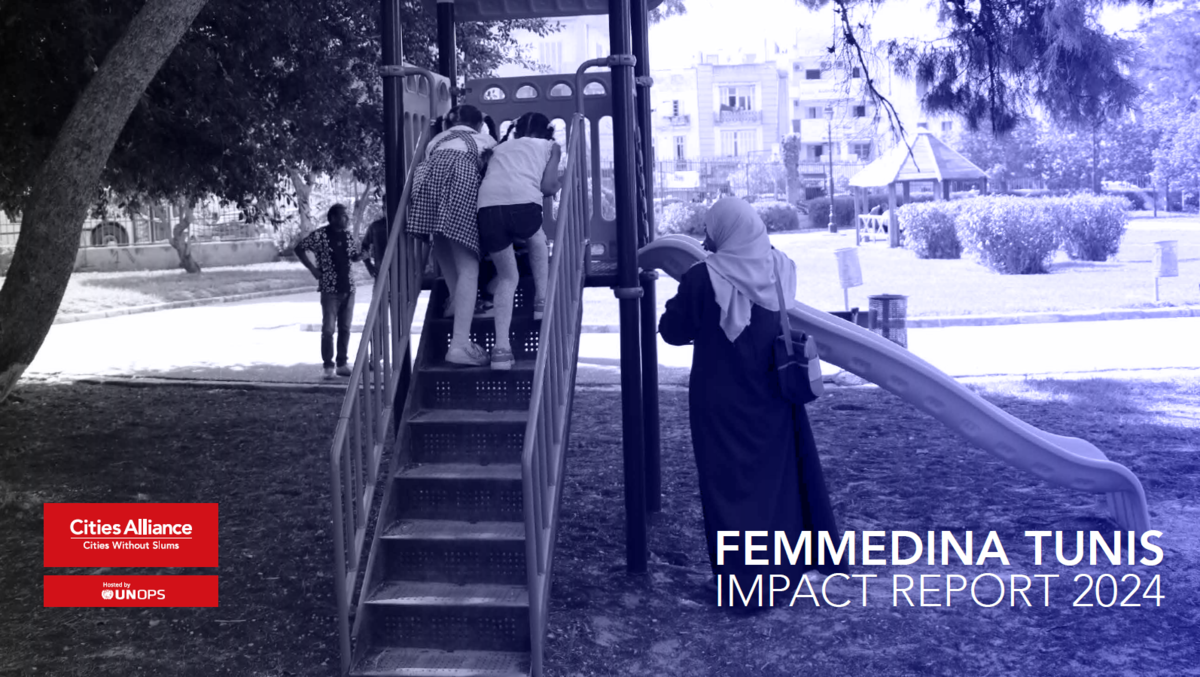- Who We Are
- How We Work
- Regional / Country Initiatives
- Legacy
- Core Themes
- Working Groups
- Portfolio & Results
- Newsroom
- Resources
Tunisia: Femmedina Phase I - Impact Report

Two years after the completion of the Femmedina project in Tunis, Cities Alliance goes back to the Medina to assess the impacts the project has had on the way women experience their city.
Implemented in 2020-2022, the first phase of the Femmedina programme in Tunisia, focused on rehabilitating public spaces in the historic centre of Tunis, through a broader process of women’s participation. The project, undertaken by the Municipality of Tunis and Cities Alliance, with financial support from USAID, aimed to to enhance women’s economic, social, and political participation through targeted interventions in the districts of Hafsia, Bab Souika, Bab Bhar, and Sidi Béchir.
Two years after the project's completion, Cities Alliance conducted a report to assess its impact on the daily lives of women in the Medina, highlighting the long-term benefits of the initiative. This report provides a comprehensive assessment of Femmedina’s impact on the women of the Medina, aiming to share knowledge for future initiatives and policies related to gender-sensitive urban development.
Key successes of Femmedina include revitalising public spaces, such as the Hafsia garden, and establishing the Women’s Training Centre, which, despite initial challenges, later flourished under community-driven management. These initiatives illustrate the transformative impact of inclusive governance models that engage municipalities, civil society, and residents in decision-making and implementation processes. Lessons learned from the project underscore the necessity of integrating urban planning with effective governance and continuous community engagement. This approach enhances the resilience of urban interventions and fosters a sense of ownership and safety among women and girls using public spaces.

